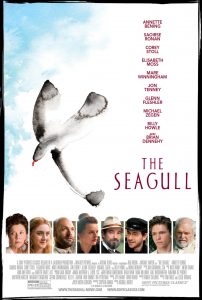 Vying for Oscar glory, Human Capital is Italy’s submission to the Best Foreign Language Film category at the 2015 Academy Awards, having already won multiple accolades at home. Following on from last year’s submission The Great Beauty (which went on to win the Oscar), themes concerning the country’s economic decline are again at the forefront. But unlike The Great Beauty which went completely over this reviewer’s head, Human Capital is much more accessible.
Vying for Oscar glory, Human Capital is Italy’s submission to the Best Foreign Language Film category at the 2015 Academy Awards, having already won multiple accolades at home. Following on from last year’s submission The Great Beauty (which went on to win the Oscar), themes concerning the country’s economic decline are again at the forefront. But unlike The Great Beauty which went completely over this reviewer’s head, Human Capital is much more accessible.
Following a charity gala, a cyclist is wounded in a hit and run. In separate chapters, we see the preceding events from multiple characters’ points of view. Dino (Fabrizio Bentivoglio) is a real-estate agent who sends his daughter Serena (Matilde Gioli) to a private school he can barely afford so that he can find a way into its affluent crowd. As luck would have it, Serena’s boyfriend Massimiliano (Guglielmo Pinelli) is the son of powerful hedge-fund tosser Giovanni (Fabrizio Gifuni). Dino is happy to use this connection as a means of climbing up the social ladder, seemingly placing it as a higher priority than his pregnant wife Roberta (Valeria Golino). Meanwhile, Giovanni’s wife Carla (Valeria Bruni Tedeschi) is trapped in a miserable marriage, struggling to find an outlet that isn’t dictated by her husband’s financial goals.
Director and co-writer Paolo Virzì succeeds in keeping the audience guessing, as the puzzle comes together piece by piece. The film’s unique structure lets Virzì toy with the audience’s understanding, and we gradually come to realise that some things were not quite as they first seemed. Not all characters are afforded their own chapter, which would have added some extra depth, however, their inclusion would likely have been mostly redundant in terms of plot development.
Perhaps Human Capital’s accessibility is in part due to involving characters from a variety of social classes. It’s not all wanky rich folk drinking cocktails on their private tennis courts. It’s also those from the middle class who aspire to reach the same levels of wank, as well as those right at the bottom who seek even the merest glimpse of the high life. Further broadening its audience reach, Human Capital focuses not just on the baby boomers, but also on the younger generation, who are swept up in the whirlwind of their parents’ greed and financial desperation. This film is likely to resonate with both generations with their differing attitudes to wealth.
Initially set in an affluent suburb in Connecticut, USA, Virzì has adapted Stephen Amidon’s American novel for the screen, shifting the story to the North Italian Provence. He has stated that he felt the story was emblematic of Italy’s financial struggles, though it is arguable that it could have worked in any number of settings. It is unusual to find a foreign adaptation of US source material, and no doubt we will see the US version on our screens in the near future. Get your casting hats on now. The Italian cast are solid, with Gifuni, Tedeschi, Bentivoglio and Gioli all having received local awards/nominations for their performances. Matilde Gioli in particular, is captivating.
With strong performances across the board, clever editing, and a clear message about society’s fixation with wealth, Human Capital is enthralling from start to finish. Demonstrating that everything has its own value, it also undoubtedly proves its own worth.
Human Capital is in Australian cinemas from 4 December through Hi Gloss Entertainment.





